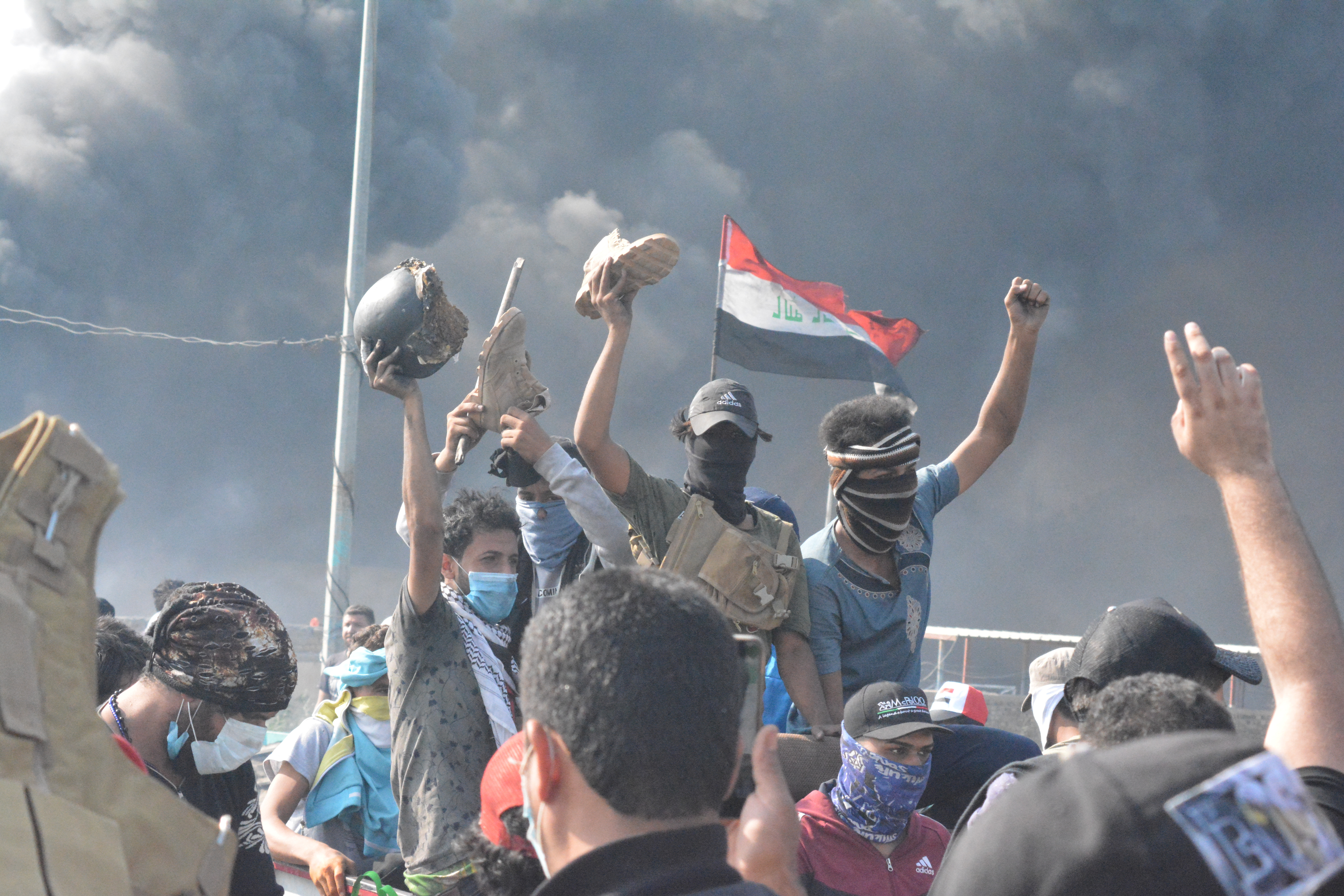What do Iraq, Lebanon, and Algeria all have in common? They're all experiencing protests. But not all protests are the same.
Iraq has endured years of fighting, from which Lebanon and Algeria were spared.
Unrest in Beirut has been bubbling for years though, as people have become increasingly dissatisfied with the economy and social services.
Since February, Algerians have been holding weekly mostly-peaceful protests, which led to their long-time President Abdelaziz Bouteflika stepping down, and new elections scheduled for December.

Iraqi demonstrators take part in the ongoing anti-government protests in Nassiriya
Iraqi demonstrators take part in the ongoing anti-government protests in Nassiriya
Iraq
More than 40 protesters may have been killed and 230 injured in the last 24 hours, according to reports. This fresh wave of violence comes as Iraqi security forces move to 'restore order,' according to a military statement Thursday.
Iraqi officials say five anti-government protesters have been killed by security forces in the city of Najaf, following the burning of an Iranian consulate.
One demonstrator was killed as security forces attempted to prevent them from storming the building.
Thirty-five protesters were killed by security forces in separate demonstrations in Nasiriyah and Baghdad since Wednesday evening.
At least 350 people have died since Oct. 1, when protesters took to the streets to decry alleged corruption.

Protesters gesture towards a driver at a roadblock during ongoing anti-government demonstrations in Beirut
Protesters gesture towards a driver at a roadblock during ongoing anti-government demonstrations in Beirut
Lebanon
Hundreds of Lebanese women marched across a former front line in Beirut Wednesday.
They carried white roses and Lebanese flags to denounce overnight clashes between rival groups that injured dozens of people. They pledged no return to civil war.
The Mediterranean country is also reeling under the worst financial crisis in decades with unprecedented capital controls.
And, as tempers flare, there are real concerns Lebanon could be sliding toward a prolonged period of instability.
"We are standing before two dangers that are racing with each other, the danger of financial collapse and the danger of security collapse. It is an unprecedented situation," said Nabil Bou Monsef, deputy editor-in-chief of the An-Nahar newspaper.
The overnight clashes — mostly fistfights and stone-throwing between supporters and opponents of Lebanese President Michel Aoun — erupted in cities and towns across the country.
Dozens were injured, and 16 people were detained, according to the Lebanese Red Cross and the Army.
President Michel Aoun has yet to hold consultations with parliamentary blocs on choosing a new prime minister after the government resigned a month ago.
The most recent violence began Sunday night.
Supporters of the two main Shiite groups, Hezbollah and the Amal Movement of Parliament Speaker Nabih Berri, attacked protesters on Beirut's Ring Road. During the civil war, that thoroughfare had connected predominantly Muslim neighborhoods in the city's west with Christian areas in the east.
Analysts say clashes between Lebanese protesters and Hezbollah supporters are putting Lebanon's military and security forces in a delicate position, threatening to crack open the country’s dangerous fault lines amid a political deadlock.
Hariri resigned Oct. 29 in response to the mass protests ignited by new taxes and the severe financial crisis. His resignation met a key demand of the protesters, but plunged the country into uncertainty, with no clear path to resolving its economic and political problems.

Demonstrators carry banners and flags during a protest rejecting the December presidential election in Algiers
Demonstrators carry banners and flags during a protest rejecting the December presidential election in Algiers
Algeria
Thousands of Algerians rallied on the 40th consecutive Friday of increasingly vociferous protests against the North African nation's leadership.
They expressed fears that next month's presidential poll will be rigged.
Chanting "No election on Dec. 12!" and "Nothing will stop us!" - as a police helicopter flew overhead - the demonstrators continued their demands for an end to Algeria's post-colonial political system. Those demands include the departure of acting leader Abdelkader Bensalah and powerful Army Chief Gen. Ahmed Gaid Salah.
Protest organizers estimated that tens of thousands participated in Friday's demonstration in the Algerian capital.
Although long-time former President Abdelaziz Bouteflika was ousted in April by the demonstrators, his legacy spawned a deep distrust of the government that remains. The protesters don't believe that those currently in power will ensure a democratic election because of their past links to the ailing, 82-year-old former leader.
The European Parliament will discuss the political situation in Algeria next week.